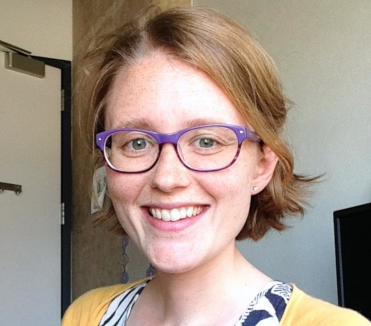Research. Publish. Prosper.
The American Journal of Interdisciplinary Sciences represents the first step toward a revolution in academic publishing. We aim to disrupt academic publishing, a $25Billion/year industry that exploits researchers, restricts public access to scholarly research and buries good ideas, ultimately slowing the development of scientific understanding and inhibiting intellectual inquiry. We are building a sustainable open-access publishing ecosystem that highlights great research.
There are two major problems with the way academic publishing is currently conceived. First, access to research is severely restricted, with some publishers charging as much as $75 to access one article. Where articles are open access, the cost to remove paywalls is paid by researchers themselves in the form of publishing or open-access fees, often to the tune of $1000 or more. Big publishers make money by charging for access to the essentially free labor of scholars (their articles), and if those authors want to make their work freely available, they have to pay a fee either from their grant funds or out of their own pocket.
Second, acceptance of articles for publication is driven by the significance of the findings and too often by the reputation of the authors. Publications are principally interested in the “importance” of a paper: whether the findings support (or better yet, contradict!) a major hypothesis in the field or the authors employ novel approaches. A small number of big-name, big-money institutions (Harvard, Stanford, Michigan, etc.) and the big-name scholars who work for them produce a huge proportion of research. Prestige can go a long way in getting a paper reviewed. Prominent researchers’ names help get their mentees’ papers published in more prestigious journals, ensuring broader readership and more citations. What’s more, big labs have big budgets for things like open-access fees.
Publishers’ focus on importance and prestige leads to “journal shopping”--the process of submitting and resubmitting to journals until the paper is accepted for review (not necessarily publication). Good research is relegated to less prestigious, paywalled journals, reducing readership and slowing the dissemination of findings of unrecognized import.
Our articles are available to anyone who wants to read them through our graduated open access model. Like many legacy media outlets, you can read up to five articles from AJIntS for free each month. After you reach the five article limit, you will be required to watch an advertisement in order to access the article. If you want an ad-free experience, you can upgrade to a premium plan ($5/month). The premium plan gives you access to unlimited, ad-free articles...and in the near future will include a number of added features as the journal rolls out fully and the revolution begins in earnest. Think of AJIntS as a streaming platform for scholarship, the Netflix of academe.
For authors, AJIntS wants to end journal shopping. Our peer reviewers are instructed to judge articles exclusively on the quality of the research. Reviewers ensure that the arguments are valid and sound, the methods are suitable to answering the questions being asked, the findings are legitimate and the conclusions are reasonable. To this end, our reviews are double-blind, so reviewers won't assume quality based on authorship. We let our readers decide which research is important.
Meet Our Team

Hilary Symes, PhD - Executive Editor for Qualitative Research
Hilary is an anthropologist who has worked with think tanks, universities, and other organizations to enhance their qualitative and mixed-methods projects. She has been awarded grants and fellowships from the National Science Foundation, Temple University, and the Smithsonian Institution. She has also taught in universities and art museums for the past 10 years, developing courses ranging from New Media to Anthropology of the Global Economy. Hilary’s current research centers around the accessibility of health care in rural and culturally diverse communities. Hilary received her Ph.D. in Anthropology from Temple University in 2019 and holds an M.A. from Columbia University and a B.A. from University of Virginia.

Andrew Van Horn, PhD - Executive Editor for Quantitative Research
Andrew describes himself as a “broad-spectrum anthropologist.” He is currently a postdoctoral fellow in the departments of Physics and Art History at Case Western Reserve University, where his research focuses on using machine learning to distinguish between artists who contributed to paintings in Renaissance workshops. Previously, he was a postdoctoral researcher for the Human Generosity Project where his research examined mutual aid in the United States and time perception during the COVID-19 pandemic. He worked as a postdoctoral fellow in the Mathematical Biology Group at the University of Houston, studying the evolution of visual order and informational content in indigenous artworks. He received his Ph.D. in Anthropology from Temple University in 2019 (M.A. 2014) and his B.A. from the University of Massachusetts at Amherst.

Joshua Vermillion - Chief Technology Officer
In the last ten years, Josh has led innovation and product development projects for Procter & Gamble, University of Maryland, and Microsoft. In 2020, he developed the product incubation model and the first three pilots for the newly founded Customer Innovation Lab at Exelon (Pepco/ComEd). His product design leadership led Basket to winning Fast Company's 2019 Most Innovative Company in the Food category. Joshua was a founder and principal at Tott Labs—a MOOC platform implemented by fortune 500 companies and private universities. He is currently the Product Design Principal for Mindgrub Technologies, an award-winning 150-person product development agency in Baltimore, MD.